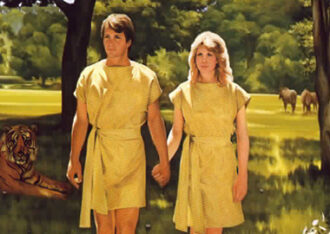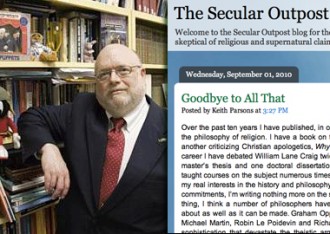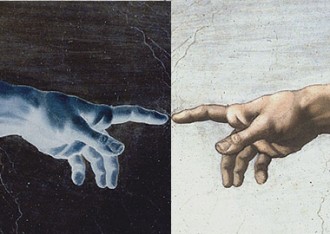
Quantum Theology: Our Spooky Interconnectedness
“We are constituted, in every moment, by our relations. Some of them we compose, but they comprise the conditions in which we are composed. Theological entanglement is a form of what’s called ‘relational theology.’ Entanglement is meant to give a more physical, and spooky edge to our interconnectedness. This isn’t just about the apophasis of an infinite God, but about the element of unknowability in all of us—as creatures made in the image of the unknowable.”
Read More






